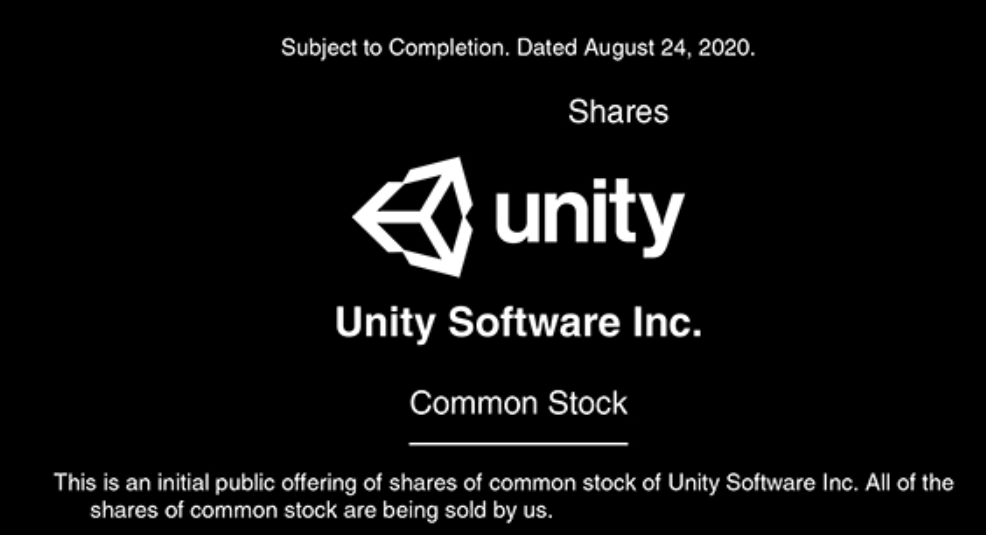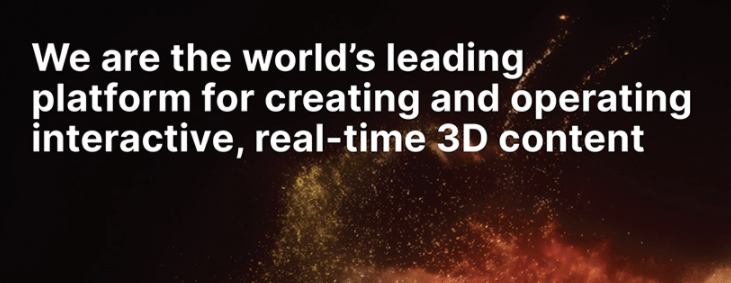
News broke this week that Unity plans to IPO. This means that Unity will be listed on stock exchanges and shares of Unity will be available for the public to purchase. Publicly traded companies are incentivized to keep their stock price up and keep share holders happy. These incentives put new public pressure on the company to focus on revenue capturing features. 74% of Unity's revenue comes from 716 customers/companies who earn Unity more than $100,000 per year. Unity has been growing into other markets outside of game dev, markets like feature film, architecture construction, self driving automation, and other interactive 3D driven sectors.
Its unclear if these 716 customers are all huge game studios. We can imagine now that Unity is publicly traded it will pursue the most profitable sectors. This could drift its focus and core competency away from games. The Unity S1 document clearly displays they are a interactive real-time 3D content platform and not strictly for game development.

Unity already has a growing sketchy reputation of inconsistent quality and scatter brained road map execution among indie devs. Half baked features are left to weather on the vine and other needed features are deprecated before they can grow. Indie devs can expect this behavior to be continue post IPO and possibly be amplified. Unity is not profitable and mostly spending on research and development.
Unity's current CEO, John Riccitiello is former failed CEO of EA games. Riccitello left EA with a golden parachute for Unity in 2013 after a complete botch of a SimCity release that was riddle with bugs and micro transactions. We're all gamers here in The RadCade and we're all familiar with the bad reputation EA is know for. Its not hard imagine Riccitello taking the EA play book and how that could be applied to monetize Unity. Want to use some custom compute shaders in your game? well you might have to pony up an additional fee. Its not hard to imagine Unity going into a subscription based model similiar to that of Adobe creative cloud.
Unity alternatives and risks.
Its wise to be aware of potential risk factors for return on investment from your game project. In the short term there will probably be no drastic risks for indie developers so if you have published Unity games or games in progress you're probably good. Looking toward future development we are already noticing a trend of indie developers moving from Unity to Godot engine. Unreal engine has seen some adoption and interest largely due to the Epic grant however, Epic is currently in legal battle with Apple that has it at risk of being pulled from Apple app stores. More developers are finding success with the MonoGame framework as they are familiar with the C# ecosystem from working with Unity but find they don't need all the Unity UI overhead for their project, this is especially true with 2D games.
If you liked this content follow us on Twitter for more!










